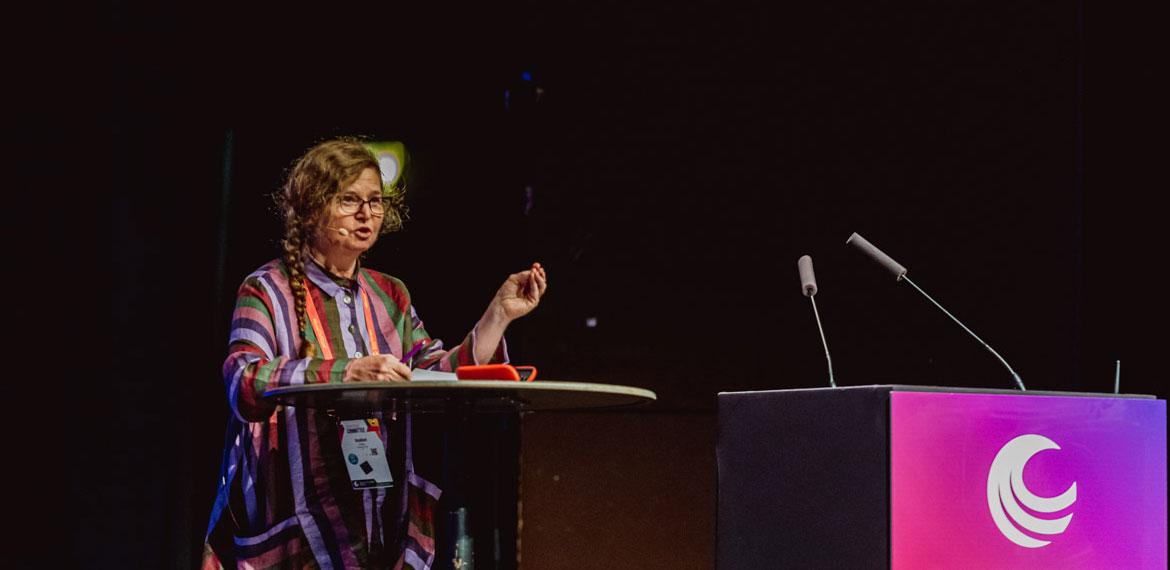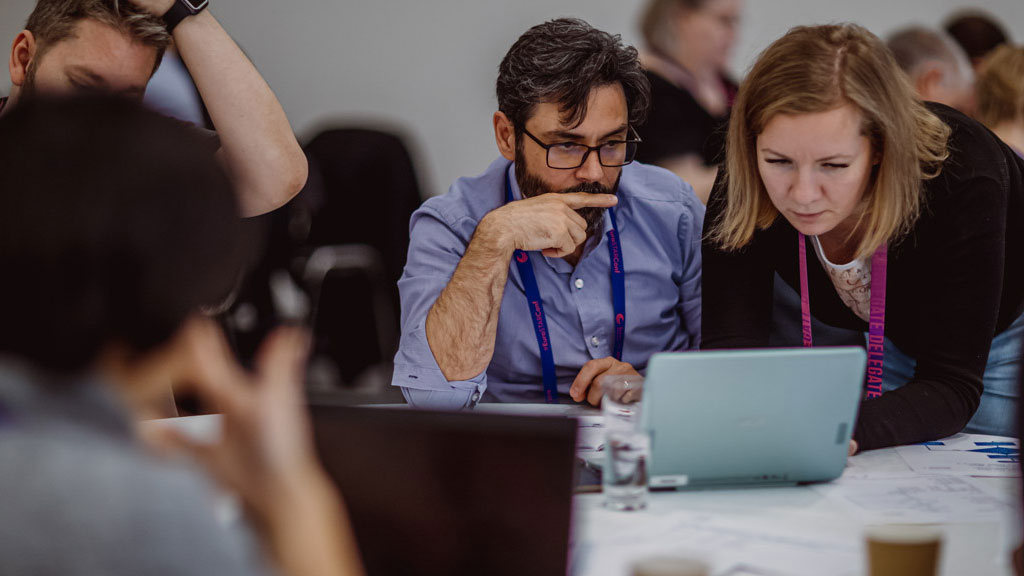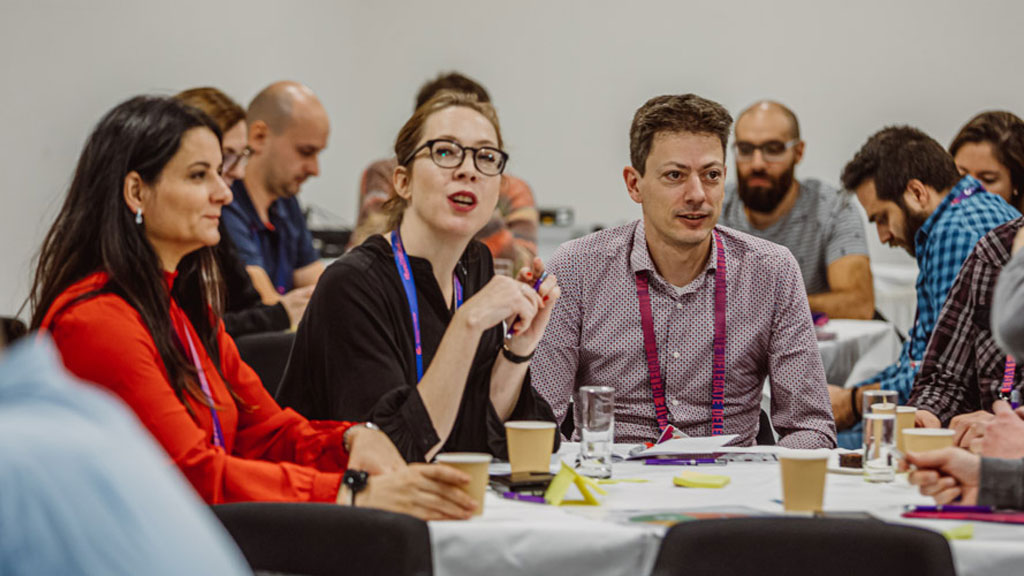
It’s our first in-person event in 2 years, and we’re so excited to bring the entire testing community together again! This year the EuroSTAR conference is bigger and better than ever before. We’ve got a programme packed with inspiring keynotes, interactive tutorials, and buzzing track talks – brought to you from 70 world class speakers.
You’ll benefit from soaking up all that incredible knowledge, and gain practical takeaways, new ideas, and fresh perspectives that you can bring home with you after the conference. We’ve put together just a small taste of what you can expect this year. Get your EuroSTAR ticket now, and start planning your conference diary.
1. Understand that testing is never finished
It is hard to understand one thing in isolation: things need to be connected to each other in order to generate a good understanding. This means your understanding of testing is never finished, as you learn more about the product and its relations – and the relations is key. Get a broader understanding and see examples of learning paths in a complex world at Rikard Edgren’s keynote. Get comfortable with the feeling that testing is difficult, and the fact that it should be. You’ll also gain a deeper understanding of your software, your situation – and all the relations.
2. Get ready to meet the needs of the next economy
Smita Mishra shares what she’s learnt about the next economy, and what technology changes we are seeing across users. How does this impact what testers do? Do we understand the users of these new technologies? Are we ready to meet the needs of our customers of the next technology? Get answers to these questions, and a whole lot more. Let’s learn what the world thinks could be technology risks, and how testers can align better to the new world view. This session will also encourage you to look at your immediate and near future testing strategy, as well as your team construct.
3. Learn how to go through a digital transformation
Every day, more and more organizations are taking on “digital transformation”, leaning on software and machinery to perform jobs, make decisions and solve problems. Machines do work that has traditionally been done by humans, or that couldn’t be done by ordinary humans unaided by machinery. Every day, the reach of what machines can do is extended by technological advancements, growing bodies of data and by human ambition. As software changes, our testing has to respond. Michael Bolton shares what you need to address when going through a digital transformation.

4. Scale your team like a pro
As your team scales, the nature of challenges will change, Just like a bonsai tree, you can’t leave a team’s growth and shape to chance without a plan. One of the major components that a bonsai represents is that of balance. How can you achieve the right balance in a remote, multicultural team, and achieve your purpose ? Seema Prabhu shares her experience with her team changing shape as they scaled, the lessons learnt, and tools she wished she had during this phase of growth.
5. Learn how to respond to external changes
The world is constantly changing, and everything is impermanent. Most especially after the last two years, we have really been forced to come to terms with how quickly and drastically things can change. How will external changes shape our teams and our work? How can we shape ourselves proactively in order to respond to changes, make changes of our own, and even thrive? Alex Schladebeck looks at what factors are at work now, and what known and unknowns we have. You’ll also learn what kinds of effects they will have on how we work, and the roles of testers and software professionals.
6. Sell and shift your testing at work
As testers who have an exploratory approach to testing, it can be challenging to gain acceptance and buy-in from leadership. Often, people you are trying to sell to are left asking, “What the hell kind of testing is that?”… and not in a good way. Nancy shares her experience with exploratory testing, and shifting testing to new methods. This high energy session will send you back to the office with the tools you need to help sell and shift your testing at work.
7. Develop your critical thinking skills
We expend huge efforts in training people in various testing skills. Yet, we often fail to train ourselves in the most important testing skill of all – how to think critically about what we are testing. When we test, we are vulnerable to cognitive biases and thinking traps that can catch out even the most seasoned tester. In this workshop, Andrew Brown shares the training course he’s developed, to show you how to improve your testing by enhancing your critical thinking skills, and addressing biases and thinking traps.
8. Set up and write your own automatic accessibility tests
Accessibility testing tools are of great help in making an accessible website, and shaping a more inclusive web. In this workshop you’ll learn how to set up and write your own automatic accessibility tests using Axe and Cypress, and cover some of the most common accessibility errors that can be discovered automatically – and how to fix them. This workshop will be presented ensemble style – mob testing with small groups where the whole group works on the same thing, at the same time, in the same space, and at the same computer.
9. Use defects to your benefit
We already know that zero defect products don’t exist. Defects that are caught in production can be costly to fix, BUT they are the client’s most concrete feedback on quality. Murex decided to accept the challenge and benefit from this feedback to shape their testing. But how can you benefit from clients’ reported defects to strengthen your test suites? Find out how Murex created a new process to get to the root cause, and take actions on the identified gaps. Plus, the ups and downs of the journey, and how they managed to transform a small team initiative into a global objective.

10. Navigate the new normal
Learnings from the past 1.5 years requires us to answer a fundamental question: how do we shape a post pandemic testing career? After all, there have been seismic shifts in customer behavior, technology solutions, business models and ways of working. It’s changed everything, especially testing. Ryan Volker will help you navigate the new normal, and get you better equipped to design your post pandemic career. Learn what changes will stick around – and how you can profit from it, plus how new work and old work will shape your future testing.
11. See why failure is a good thing
Fail. Red Build. Outage. Regression… if you’ve ever worked in DevOps, these phrases probably fill you with dread… but they shouldn’t! Failure is vilified, it’s judged, sometimes it’s punished… And it’s the default. Success is the exception. Dylan Lacey is here to show you that failure is a good thing, and how confidence without failure is false confidence. He’ll present concrete examples of how failure helps organisations be more confident. Learn how to have more failures, failure anti-patterns, and pernicious failure psychology.
12. Go from survive to thrive
A new job, in a new industry, a new city, a new tech stack, and no PC… sound overwhelming? Chris Armstrong started a new job just like this – and with no PC he had no email or access to training/onboarding/tests/codebase. He wasn’t even introduced to the team. He had a copy of industry-standard documentation, and his boss went on leave. What would you do? Chris shares how he turned this situation around, and how he now ensures that new starters he works with don’t ever have to go through what he did. This is how you go from surviving to thriving.
13. Learn about the 8 testing senses
Tools become extensions of our perceptions, our cognition, and our physical movements. Good tools enhance our flow as we work. Poor tools impede our flow, and even become blockers. In understanding interactions between people, their tools, and their real and virtual worlds, Isabel Evans asks: what if we engage with not just five but all our eight senses? Learn how tools tell us what to do, how tools become an extension of our bodies, and how tools use or ignore our senses. This affects what we think about when testing products, and when choosing our own tools for supporting testing.
14. Automate BDD scenarios with SpecFlow
This workshop helps you to speed up with automating BDD scenarios with SpecFlow, the official Cucumber implementation for .NET. Gáspár Nagy will start with a very brief introduction to BDD/ATDD, and what are the most important characteristics of good BDD scenarios, before jumping into coding in order to learn about the most important features of SpecFlow. You’ll get plenty of hands-on exercises where you can practice how to automate and execute BDD scenarios with SpecFlow, and see how the test-first approach can help you to get quick feedback about the quality.
15. Get into a T-shape
Software development is in continuous change, and so is testing. As a tester our role has evolved into multiple forms, mostly focusing on being more T-shaped. But how do you become more T-shaped, and what is T-shaping? Gerard talks through the various forms of T-shaping within DevOps engineering, like CI/CD enabling, software development, and operations, and show you how you can become more T-shaped – by learning that achieving knowledge is about setting goals
Whew. That’s just a tiny taster of what’s on offer at EuroSTAR this year. This is a space where you can ask questions, share your ideas, and get help from the testing community to solve your problems. You’ll walk away with the knowledge you need to take your testing to the next level.
Book your ticket now and get 10% off with our Early Bird offer – this ends April 22nd, so book now.